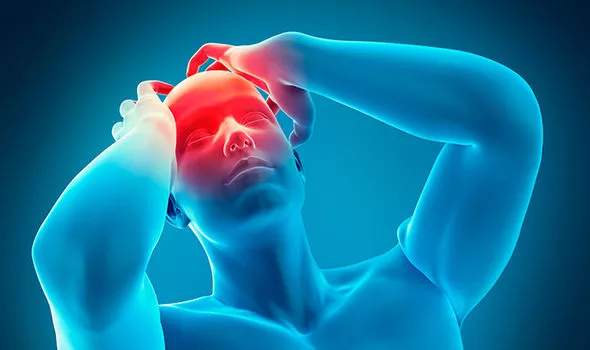High blood pressure, also known as hypertension, is a common condition that can lead to severe health problems if not properly managed. One of the symptoms of uncontrolled high blood pressure is a headache. These headaches can range from mild to severe and often require medication to alleviate the pain and manage the underlying condition. In this article, we will explore the various medications available for treating blood pressure headaches, their mechanisms, and considerations for their use.
What Is Blood Pressure Headaches?
High blood pressure can cause headaches due to the increased pressure on blood vessels in the brain. When blood pressure is significantly elevated, it can lead to the dilation of blood vessels, causing pain and discomfort. Blood pressure headaches are often described as a pulsating or throbbing pain, typically occurring on both sides of the head. These headaches can also be accompanied by other symptoms such as nausea, dizziness, blurred vision, and shortness of breath.
SEE ALSO: what causes high blood pressure in eyes
Medications for Blood Pressure Headaches
When it comes to treating blood pressure headaches, the primary goal is to lower the blood pressure and relieve the headache. There are several types of medications that can be used to achieve this, each working through different mechanisms.
1. Antihypertensive Medications
Antihypertensive medications are primarily used to lower blood pressure and prevent complications associated with hypertension.
These medications can also help alleviate blood pressure headaches by reducing the pressure on blood vessels. Common classes of antihypertensive medications include:
Diuretics: Diuretics, also known as water pills, help the kidneys remove excess sodium and water from the body, which can lower blood pressure. Examples include hydrochlorothiazide and furosemide.
Beta-blockers: These medications reduce the heart rate and the force of the heart’s contractions, leading to lower blood pressure. Examples include metoprolol and atenolol.
ACE inhibitors: Angiotensin-converting enzyme (ACE) inhibitors relax blood vessels by blocking the formation of a hormone that narrows blood vessels. Examples include enalapril and lisinopril.
Calcium channel blockers: These medications prevent calcium from entering the cells of the heart and blood vessel walls, resulting in relaxed blood vessels and lower blood pressure. Examples include amlodipine and diltiazem.
Angiotensin II receptor blockers (ARBs): ARBs block the action of a hormone that causes blood vessels to narrow, helping to lower blood pressure. Examples include losartan and valsartan.
2. Pain Relievers
Pain relievers can be used in conjunction with antihypertensive medications to manage the pain associated with blood pressure headaches. Over-the-counter (OTC) pain relievers such as acetaminophen (Tylenol) or nonsteroidal anti-inflammatory drugs (NSAIDs) like ibuprofen (Advil, Motrin) can be effective in reducing headache pain. However, it’s important to use these medications with caution, as some pain relievers can affect blood pressure and interact with antihypertensive medications.
3. Combination Medications
Some medications combine antihypertensive agents with pain relievers to provide dual action in lowering blood pressure and relieving headache pain. These combination medications can be particularly effective for individuals experiencing blood pressure headaches.
However, they should only be used under the guidance of a healthcare provider to ensure proper management of blood pressure and headache symptoms.
Lifestyle Changes And Non-Pharmacological Approaches
In addition to medication, lifestyle changes and non-pharmacological approaches can play a significant role in managing high blood pressure and reducing the frequency and severity of headaches. Some effective strategies include:
Diet: Adopting a healthy diet that is low in sodium, saturated fats, and cholesterol can help control blood pressure. The DASH (Dietary Approaches to Stop Hypertension) diet is particularly effective for individuals with high blood pressure.
Exercise: Regular physical activity can help lower blood pressure and improve overall cardiovascular health. Aim for at least 150 minutes of moderate-intensity aerobic exercise per week.
Stress Management: Stress can contribute to high blood pressure and trigger headaches. Techniques such as deep breathing, meditation, yoga, and progressive muscle relaxation can help manage stress levels.
Weight Management: Maintaining a healthy weight can significantly reduce blood pressure and the risk of hypertension-related headaches.
Limit Alcohol and Caffeine: Excessive alcohol and caffeine consumption can raise blood pressure and trigger headaches.
Limiting intake of these substances can help manage blood pressure and reduce headache frequency.
Monitoring And Managing Blood Pressure
Effective management of high blood pressure requires regular monitoring and a comprehensive treatment plan. Individuals with hypertension should:
Monitor Blood Pressure Regularly: Use a home blood pressure monitor to track blood pressure readings and identify any patterns or triggers for headaches.
Follow Medication Regimen: Take prescribed medications as directed by a healthcare provider and report any side effects or concerns.
Regular Check-Ups: Schedule regular appointments with a healthcare provider to monitor blood pressure, adjust medications, and address any new symptoms or concerns.
Educate Yourself: Understanding the condition, treatment options, and lifestyle modifications can empower individuals to take an active role in managing their blood pressure and preventing headaches.
When to Seek Medical Attention
While most blood pressure headaches can be managed with medications and lifestyle changes, there are situations where immediate medical attention is necessary. Seek medical help if:
The headache is sudden and severe.
The headache is accompanied by vision changes, confusion, or difficulty speaking.
There is a significant increase in blood pressure readings.
The headache does not respond to prescribed medications.
There are additional symptoms such as chest pain, shortness of breath, or severe dizziness.
Conclusion
Blood pressure headaches can be a distressing symptom of uncontrolled hypertension, but with the right combination of medications and lifestyle changes, they can be effectively managed. Antihypertensive medications play a crucial role in lowering blood pressure and preventing headaches, while pain relievers can provide additional relief. Adopting a healthy lifestyle and regularly monitoring blood pressure are essential for long-term management. If you experience severe or persistent headaches, seek medical attention to ensure proper diagnosis and treatment. By working closely with a healthcare provider, individuals can achieve better blood pressure control and reduce the impact of headaches on their daily lives.

